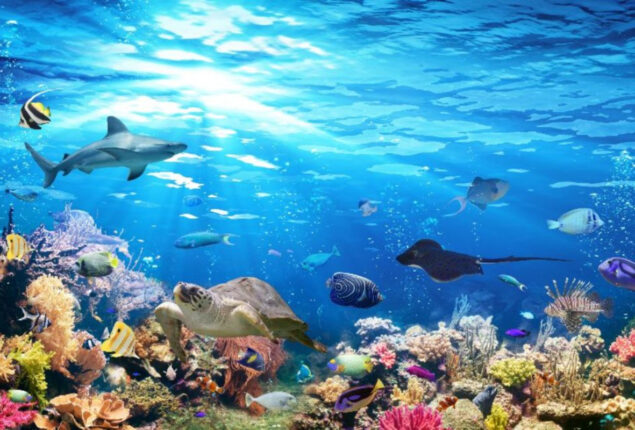Zuckerberg: The censoring of the Biden laptop report was caused by an FBI alert
According to Mark Zuckerberg, the FBI's false warnings were the reason Facebook...

Global ocean protection
A global accord to safeguard the world’s seas and marine life has failed in its fifth attempt. Governments had been negotiating the details of the UN High Seas Treaty for two weeks in New York, but they were unable to come to an agreement.
Despite making up roughly two-thirds of the world’s seas, only 1.2% of them are protected, according to international standards.
Campaigners for the environment have referred to it as a “lost opportunity”.
The UN Convention on the Law of the Sea, the most recent international accord on ocean preservation, was signed in 1982, 40 years ago.
The high seas, which are international waters where all nations have the right to fish, ship, and conduct research, were established by that agreement.
The growing hazards of climate change, overfishing, and shipping traffic pose a threat to marine species that exist outside of the 1.2% of protected areas.
168 original treaty signatories, including the EU, met over the past two weeks to attempt to forge a new deal.
During the meeting, the International Union for the Conservation of Nature (IUCN), which tracks the condition of the world’s biodiversity, spoke with BBC News.
Kristina Gjerde, their Senior High Seas Advisor, emphasized the significance of this agreement by saying, “The high seas are the critical blue heart of the world.”
We all care deeply about the coastal communities, fisheries, and biodiversity that are impacted by what occurs on the high seas.
Sharing of marine genetic resources, or biological material derived from marine plants and animals that can be used to advance humankind’s understanding of food, medicine, and other fields
Prior to the summit, more than 70 nations, including the UK, had previously decided to safeguard 30 percent of the world’s seas.
Fishing catch limitations, shipping lane routes, and exploratory activities like deep sea mining would all be affected by this.
When minerals are extracted from the sea bed 200 meters or deeper, this is referred to as deep-sea mining. According to the IUCN, these minerals include cobalt, which is used in electronics but the process may also be hazardous to marine life.
The International Seabed Authority, which oversees these activities, had granted 31 contracts to search for minerals in the deep sea as of March 2022.
Catch all the International News, Breaking News Event and Latest News Updates on The BOL News
Download The BOL News App to get the Daily News Update & Follow us on Google News.